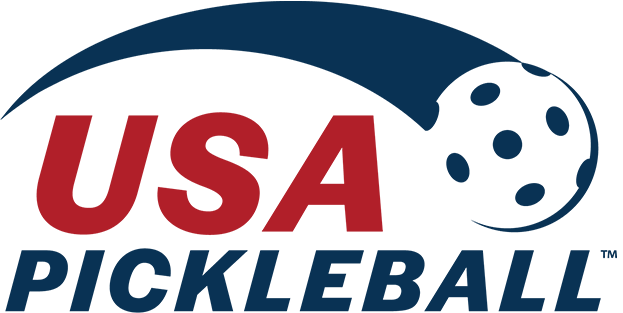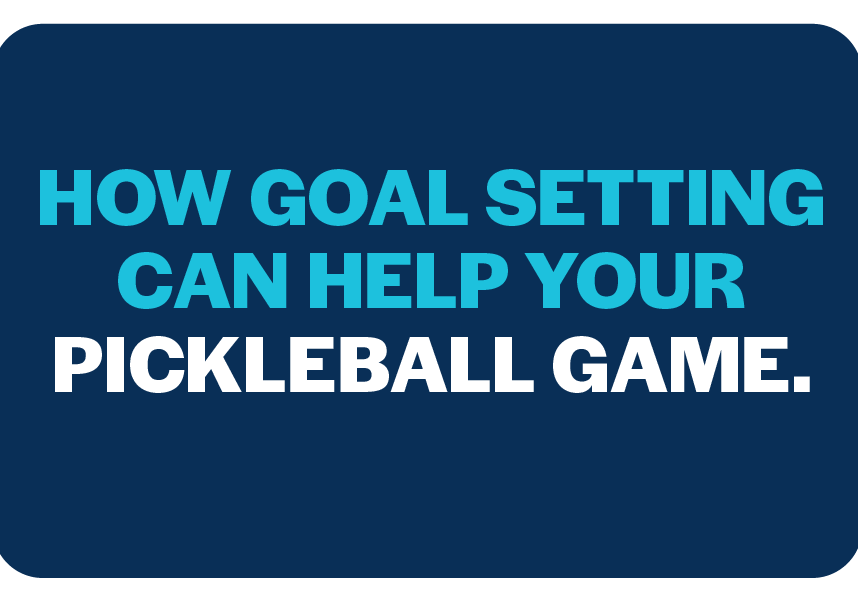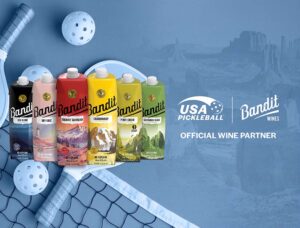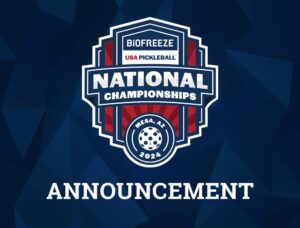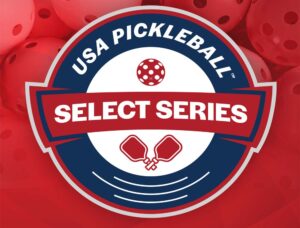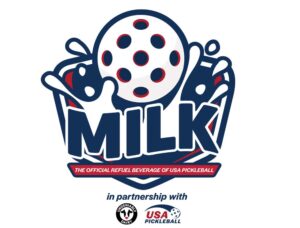How Goal Setting Can Help Your Pickleball Game
By Kent Lindeman
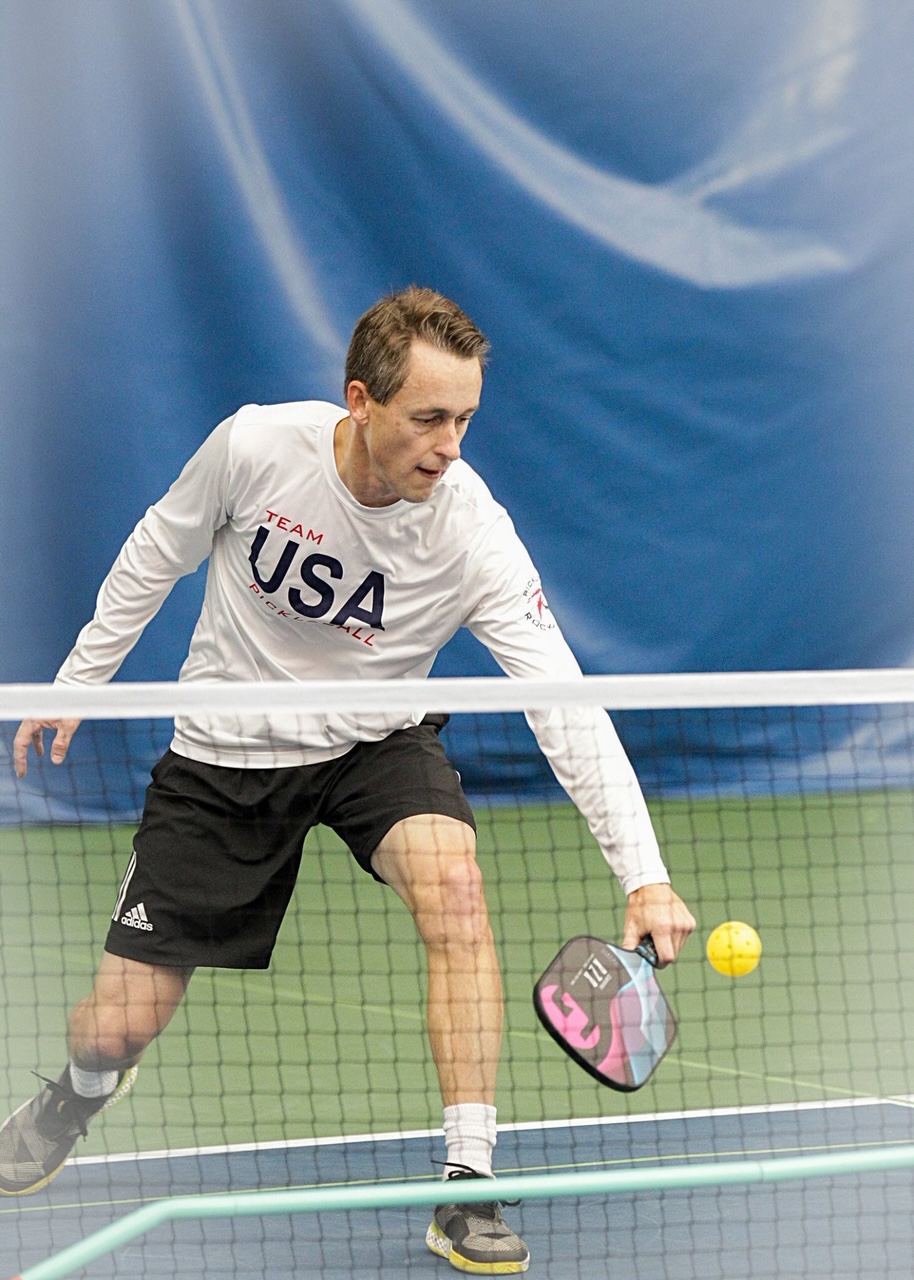 Each time you step onto a pickleball court, do you have goals in mind for how you’d like to perform? Do you carefully consider what you’d like to get out of that day’s match or practice? Let’s discuss how you can incorporate goal setting techniques into all points of your play – from basic drilling to practice matches and rec play to competing in tournaments – to increase mental sharpness and improve your skills.
Each time you step onto a pickleball court, do you have goals in mind for how you’d like to perform? Do you carefully consider what you’d like to get out of that day’s match or practice? Let’s discuss how you can incorporate goal setting techniques into all points of your play – from basic drilling to practice matches and rec play to competing in tournaments – to increase mental sharpness and improve your skills.
Goal setting improves performance because it generates two things – focus and fuel. For this reason, it’s important to set both short and long term goals. Short-term goals heighten a player’s mental focus from rep-to-rep, drill-to-drill, and match-to-match. Routinely ask yourself, “What’s my intention for this next drill or practice match or today’s tournament?”
Long-term goals produce the emotional fuel for a player to persevere and sustain effort through the sport’s challenges and setbacks in pursuit of a vision of who they want to become and what they want to accomplish. Ask yourself – looking into the future, how do I picture myself as a player? As a competitor? How will I have improved my skills, my enjoyment of the sport and achieved successful results?

Dr. Bernie Holliday
Goal setting works best when goals target actions and behaviors that are within a player’s control, says Dr. Bernie Holliday, a Certified Mental Performance Consultant ® with the Association for Applied Sport Psychology. “Players often pursue largely uncontrollable outcome goals such as reaching the finals in each tournament they play or being the best player in their skill level at their club. These goals can have undesirable side effects because ‘the opponent gets a vote’ in whether or not these goals are achieved,” contends Holliday.
As a result, this can often cause frustration, discouragement, and decreased confidence. It’s important to emphasize that these less controllable outcome goals aren’t necessarily bad, if they can help generate fuel for players to pursue learning and improvement. Holliday says that the key to making them work is to ensure they’re coupled with more controllable process-based goals. A good example might be – in order to become the best player at my skill level in my group, I will 1) take a private lesson once every other week; 2) practice 2-3x per week and 3) eat more healthy foods.
Goal setting is a highly personalized endeavor and there is no right or wrong way to document your goals. Holliday believes that while writing down goals increases commitment for some, it turns improvement and development into a chore or burden for others. Consider using something you carry around with you all the time as a handy goal setting device – your mobile phone. Most phones have notes, voice memo or video apps built right that allow you to type, dictate or record your goals before you play (not while you drive, please). Keep it simple – 2 to 3 goals per session are plenty.
Before heading out to drill, set some goals that relate to a particular shot that you want to work on and quantify the goal so you can measure your success. For example, I want to hit 15 third shot drops in a row without an error or execute 10 consecutive cross court dinks. For rec play, consider setting a goal to win more than 60% of your games that day and focus on how you can better communicate with your partner (both verbally and with signals). Or for a team that you might beat regularly in practice, try to give up less points than you usually do or in the last game you just won. At tournaments, besides the commonly-desired “podium finish”, consider setting a goal to have a winning record in pool play, or beating a team you’ve previously lost to, or winning a match in your first tilt at a higher level. Remember to revisit your goals after you leave the court to assess how you did so you can reflect on your successes and chart a plan to achieve goals that you didn’t reach that time.
So, for your own goal setting, explore what works best for you and what produces consistent focus and fuel for your pickleball play.
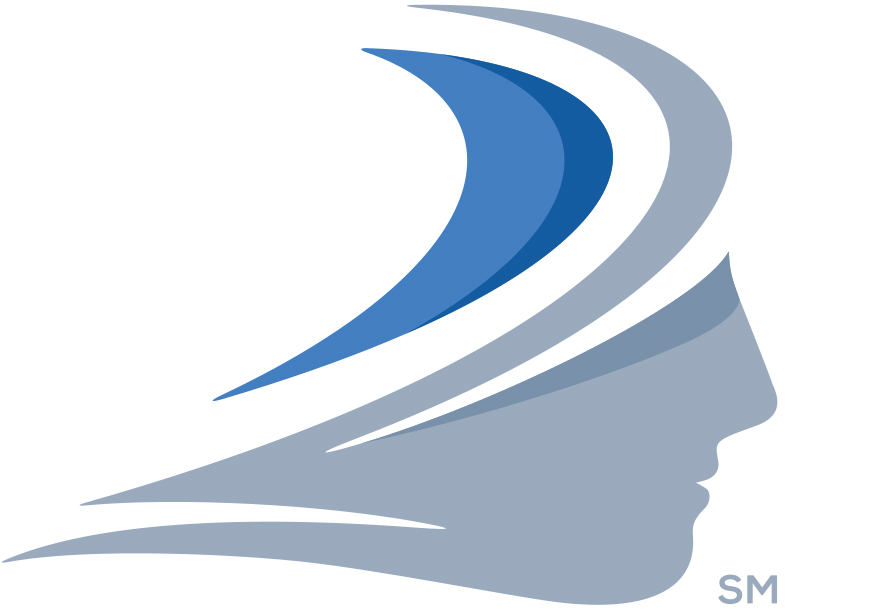
About the Author
Kent Lindeman is Executive Director for the Association for Applied Sport Psychology, the premier organization elevating sport and human performance through the advancement and application of excellence in mental performance and mental health. He was a medalist at both the 2019 US Open and 2019 USA Pickleball Nationals.
